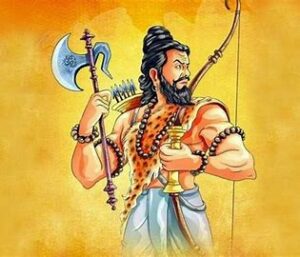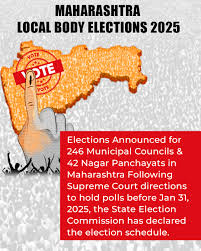
Lord Parshuram is a prominent figure in Hindu religion and is considered to be the sixth avatar or incarnation of Lord Vishnu. He is also known as Rama Jamadagnya, and is revered as the god of justice and protector of the righteous.
According to the Hindu mythology, Lord Parshuram was born to sage Jamadagni and his wife Renuka. He was raised and trained by his father in the art of warfare, and was given a divine axe or ‘Parshu’ by Lord Shiva, which he used to eliminate evil from the world.
Lord Parshuram is famous for his role in the ‘Ramayana’, an ancient Hindu epic. In the epic, he helped Lord Rama, the seventh avatar of Lord Vishnu, in his quest to rescue his wife Sita from the demon king Ravana.
Lord Parshuram is also known for his fierce temper and his unwavering devotion to Lord Vishnu. He is worshipped by many Hindus and is considered to be a symbol of courage, righteousness, and strength.
Parshuram, also known as Rama Jamadagnya, is a prominent figure in Hindu mythology and is believed to be the sixth avatar or incarnation of Lord Vishnu. He is revered as the god of justice and protector of the righteous.
Lord Parshuram Janmotsav is an auspicious Hindu festival celebrated every year to mark the birth anniversary of Lord Parshuram, who is revered as the sixth incarnation of Lord Vishnu. The festival is observed on the third day of the Shukla Paksha (waxing phase of the moon) in the Hindu month of Vaishakh, which usually falls in the months of April or May.
On this day, devotees of Lord Parshuram observe fasts and offer prayers to seek his blessings. They also perform special poojas and rituals at temples dedicated to Lord Parshuram, and offer fruits, flowers, and other offerings as a sign of devotion.
It is believed that by observing fast and offering prayers on this day, one can attain peace, prosperity, and happiness in life. Lord Parshuram Jayanti is a significant festival for the followers of Hinduism and is celebrated with great enthusiasm and fervor in different parts of India.
The celebration of Parshuram Jayanti holds great significance for the followers of Hinduism. Here are a few reasons why:
- Celebration of Lord Parshuram’s Birth: Parshuram Jayanti is celebrated to mark the birth anniversary of Lord Parshuram, who is revered as the sixth incarnation of Lord Vishnu. The festival is an occasion to remember and celebrate the life of Lord Parshuram and his divine deeds.
- Promotes Dharma: Lord Parshuram is believed to be the god of justice and protector of the righteous. He is revered for his courage, righteousness, and strength, and is a symbol of the triumph of good over evil. The celebration of Parshuram Jayanti promotes the ideals of dharma (righteousness) and encourages people to follow the path of truth and justice.
- Spiritual Significance: On the day of Parshuram Jayanti, devotees offer special prayers and perform rituals to seek the blessings of Lord Parshuram. It is believed that by observing fasts and offering prayers on this day, one can attain spiritual growth and inner peace.
- Cultural Importance: Parshuram Jayanti is an important cultural festival for the followers of Hinduism. It is celebrated with great enthusiasm and fervor in different parts of India, and is an occasion for people to come together and celebrate their shared cultural heritage.

In Hindu religion, Parshuram is often associated with the Brahmin community, who are considered to be the highest caste in the traditional Hindu social hierarchy. According to some beliefs, Lord Parshuram was himself a Brahmin and was born to the sage Jamadagni and his wife Renuka, who were also Brahmins.
There are many stories and legends that connect Parshuram with the Brahmin community. For example, it is said that Parshuram was a fierce warrior who used his divine axe to eliminate evil from the world, but he was also a learned scholar and was well-versed in the Vedas and other sacred texts of the Brahmins.
In some Hindu texts, Parshuram is depicted as a Brahmin who used his knowledge and skills to protect the Brahmin community and uphold their values and traditions. He is also believed to have taught and trained many Brahmins in the art of warfare and self-defense.
Overall, Parshuram’s connection with the Brahmin community represents the idea of the integration of knowledge, power, and spiritual values. It emphasizes the importance of using one’s skills and knowledge to serve and protect others, and to uphold the principles of righteousness and justice.
One of the most famous shlokas (verses) dedicated to Lord Parshuram is:
“Kararavinde na padaravindam Mukharavinde viniveshayantam Vatasya patrasya pute shayanam Balam mukundam manasa smarami”
This verse is a prayer to Lord Parshuram and it means:
“I meditate on the child Mukunda (Lord Vishnu) who is reclining on the banyan leaf, with his lotus-like feet placed on his own lotus-like hands and who has a lotus-like face. May he reside in my mind and heart.”
This shloka is often recited by devotees of Lord Parshuram as a way of seeking his blessings and expressing their devotion. It highlights the divinity of Lord Parshuram and his association with Lord Vishnu, the supreme god in Hindu mythology.




